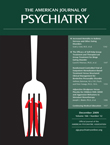To the Editor: Dr. Barglow suggests that the results reported in our study may have been biased by experience of previous psychotherapy. However, subjects who had previous psychotherapy were equally distributed between the two treatment arms (CBT and short-term psychodynamic psychotherapy). Furthermore, Dr. Barglow’s assumption that earlier treatment predisposed patients to have a good outcome is purely speculative and not supported by empirical data. Patients included in the trial who had already received psychotherapy fulfilled diagnostic criteria for generalized anxiety disorder at the beginning of the trial. Accordingly, they did not sufficiently respond to the previous treatments and thus can be described as nonresponders. Patients who do not respond to treatment cannot be expected to have a more favorable outcome.
We do not find indication of bias as the result of previous psychotherapy influencing the results of our study. However, as stated in our article, there may be indeed a bias in favor of CBT, since CBT therapists are usually more familiar with manualized psychotherapy than psychodynamic therapists.
Furthermore, Dr. Barglow questions our conclusion that both treatments were “beneficial.” He states that our research methods “did not address this issue” and the effects reported could have relied on a placebo effect. We assume that Dr. Barglow refers to the fact that our design did not include a condition controlling for the common factors of psychotherapy. This concern represents a very isolated perspective on research that does not take available empirical evidence into account.
First, in our study, we used a randomized, controlled trial design. A randomized, controlled trial may include different comparison conditions (e.g., placebo [psychological or pill], alternative bona fide treatments, or already established treatments
[1] ). The method of CBT that we applied as a comparison condition to short-term psychodynamic psychotherapy is regarded as efficacious and specific
(2) (i.e., it has proved to be superior to placebo or to an alternative bona fide treatment in at least two independent research settings). These comparison conditions control for the common factors of psychotherapy.
However, one could argue that the method of CBT we applied has proved to be efficacious and specific in the available trials but not in the study we carried out. In this case, the effects of CBT yielded in our study should correspond to those of placebo-comparison approaches in studies of generalized anxiety disorder. As described in our article, the effects of CBT were at least as large as those reported for CBT in other studies in which it proved to be superior to conditions controlling for common-factor (placebo) effects with large between-group effect sizes (>1.0)
(3) .
More in general, psychotherapy has proved to be superior to placebo (comparison conditions) by 0.48 to 0.58 standard deviations
(4 –
6) . The evidence for this is clear. Thus, psychotherapy research does not have to demonstrate superiority to placebo in each and every study every time.
In addition, the concept of placebo comparisons in psychotherapy research is conceptually flawed to the degree that Lambert and Bergin
(7) pleaded more than 15 years ago to give them up. Placebo effects in psychotherapy are, ultimately, psychotherapeutic effects (common-factor effects)
(8) .

